Foresea is initially made to give Oerol visitors an odd experience according to the rising sea level and to provoke a discussion about this topic. An experiment that we did in the faculty of Architecture about how high the sea level would be in 50, 100 or 200 years, evoked questions from the interviewed students as: ‘Where does all the water comes from?’, ‘Is the sea already rising?’ and ‘Can we still stop the rise?’. These questions and remarks from the visitors made us realize that there is a lot of ignorance when it comes to sea-level rise.
When the project developed, the interactive part of Foresea gave us opportunities to collect data according to the visitors’ awareness about sea-level rise. By hanging up the waterlines at a certain height, visitors gave their opinion on the statements connecting to the poles. The sea of opinions kept on growing during the festival. People could immediately see the opinions from the previous visitors and could add their own. To have a good overview of the data in the end, we decided to write down the visitors’ opinions according to the statements together with some personal information. We collected data out of more than 2300 visitors. The data is processed into graphs. Click on your poles and find out what other Oerol visitors thought about the statements.
Click your pole to find your results!
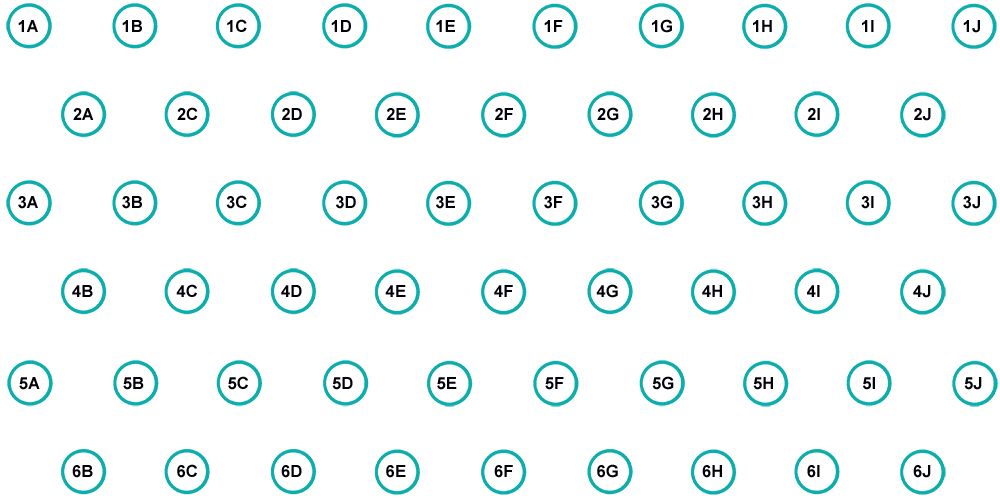
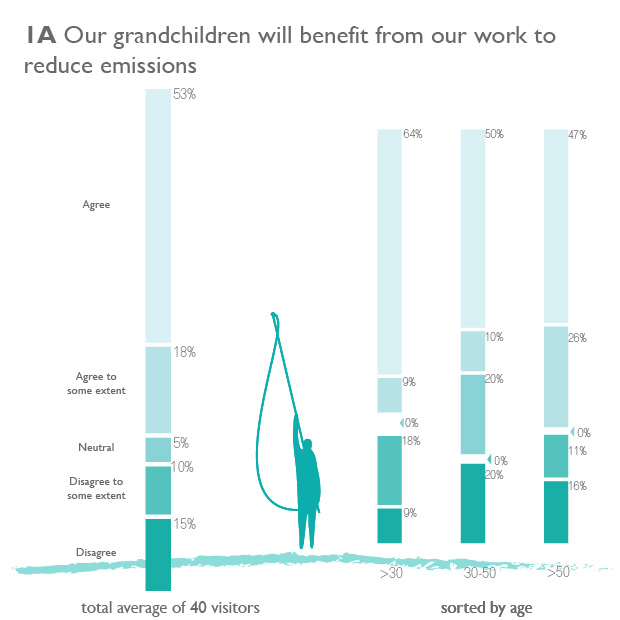
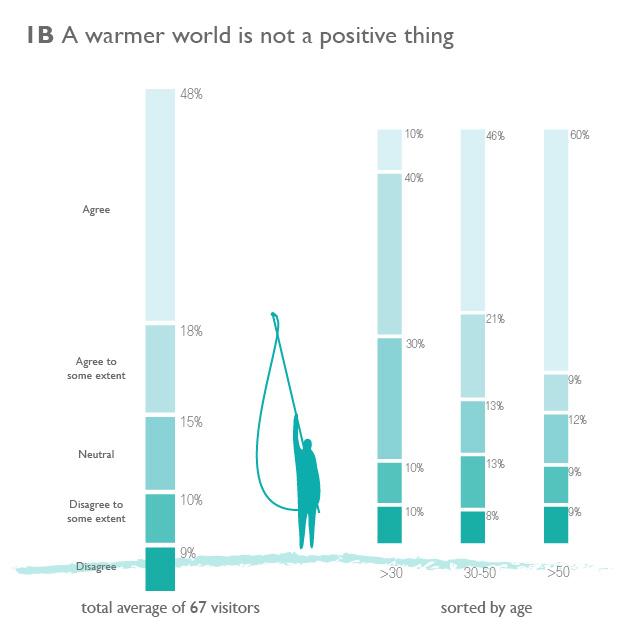
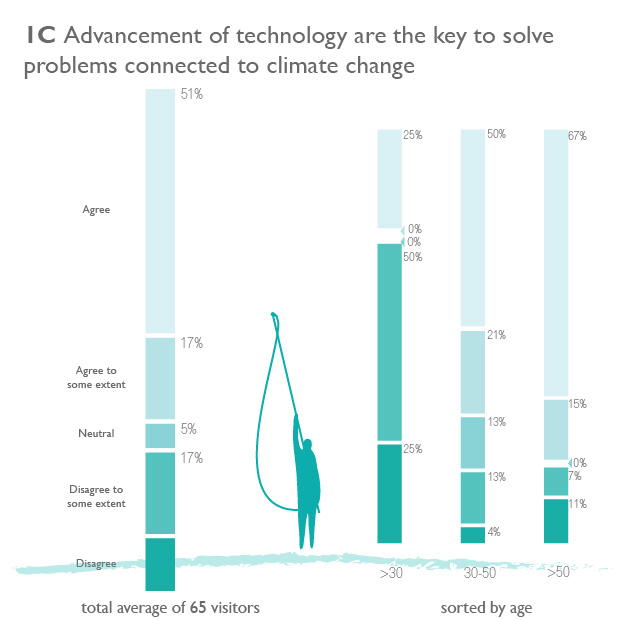
The sea level has always fluctuated. But there is 40% more CO2 emission since the industrial revolution and the global mean sea-level rised 19 cm between 1900 – 2010. Even if we stop with all C02 emissions at this moment the process of climate change will go on, because the process is dependent on the ocean circulation. The ocean circulates in a time scale of hundreds or even thousands of years. 74% Percent of the visitors was optimistic about being able to stop sea-level rise.
(IPCC, 2013)
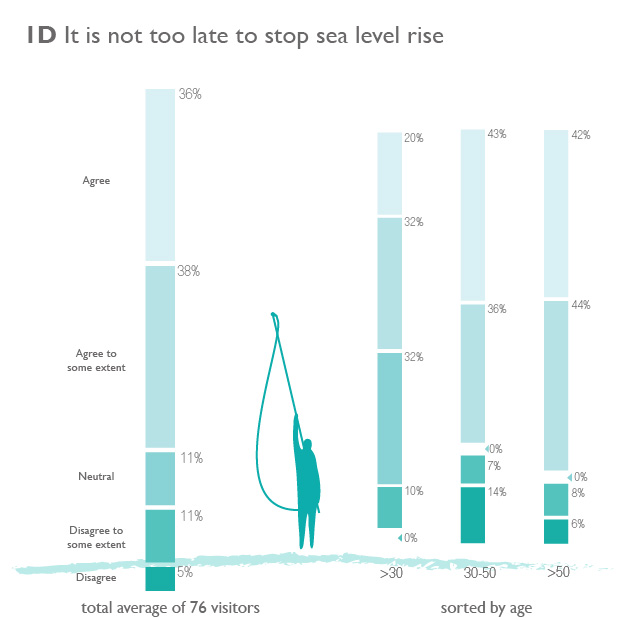
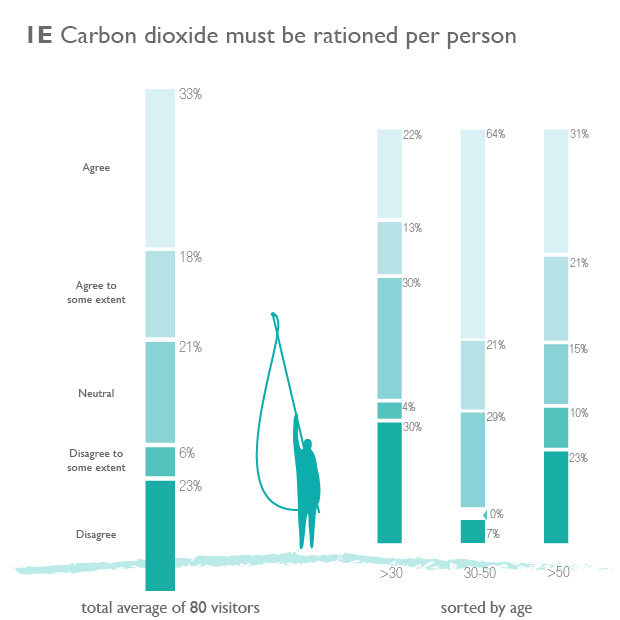
The average world citizen adds 4.9 metric tons/capita each year whereas the average Dutch person adds 6.7 Metric tons/capita per year. The difference corresponds to flying back and forth to New York three times in one year. To the idea that the emissioned carbon dioxide should be rationed per person, the Oerol visitor responded diverse. The younger visitors are less positive about this idea than the middle aged (30-50) visitors.
(The World Bank, 2011)
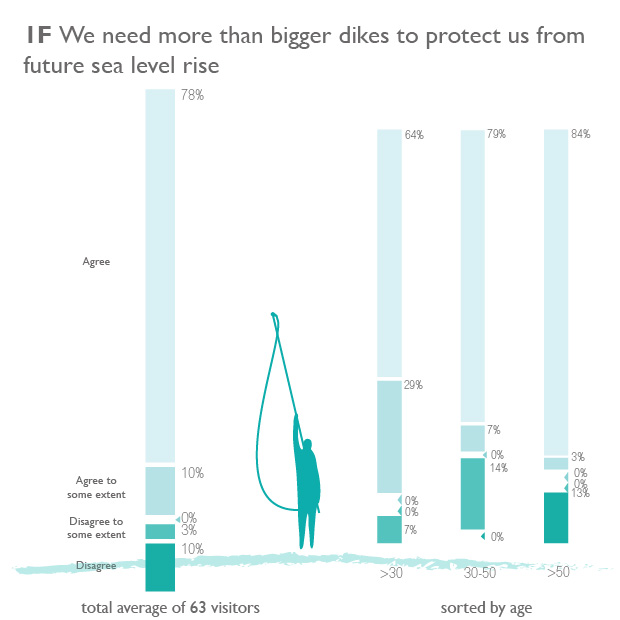
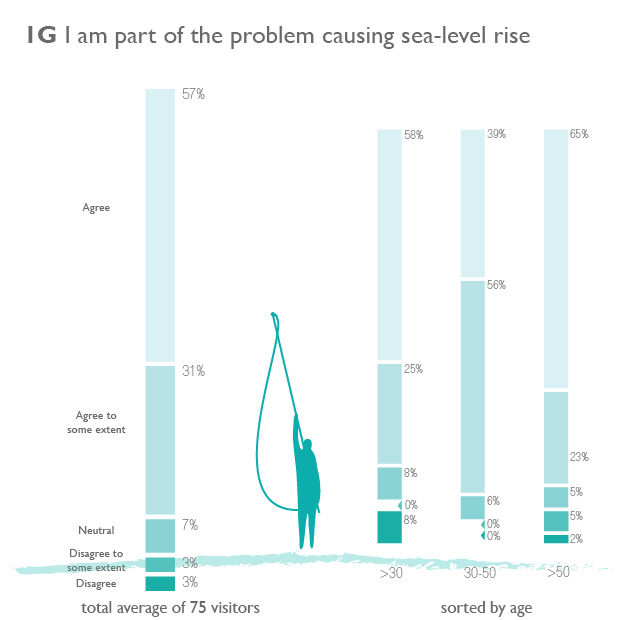
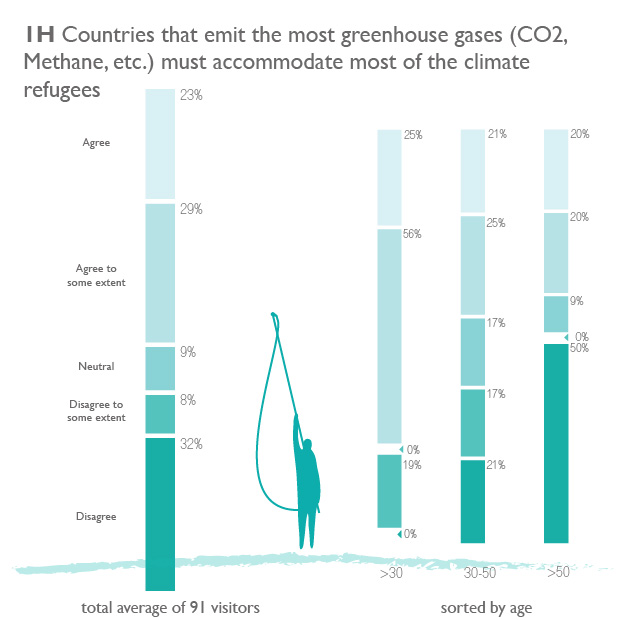
The emission of greenhouse gases has influences on the climate. It’s a complicated system where the amount of greenhouse gasses in the atmosphere, is not only made by direct pollution from combustion of fossil fuels but also by deforestation, farms, methane pockets under icecaps, land use etc. The changing climate goes along with more extreme weather circumstances, which can be a danger for people. To the idea that countries with a high emission should accommodate climate refugees, the Oerol visitors’ average response was neutral. Young visitors had a much more positive opinion towards this statement than the middle aged visitors and far more than the elderly visitors.
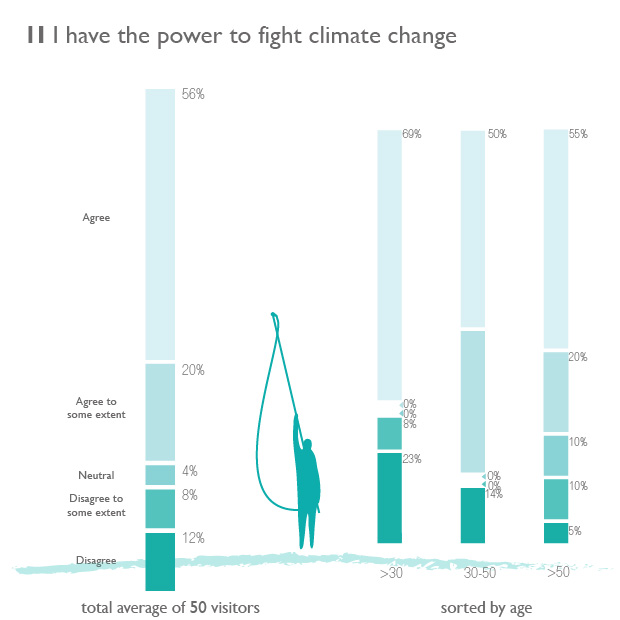
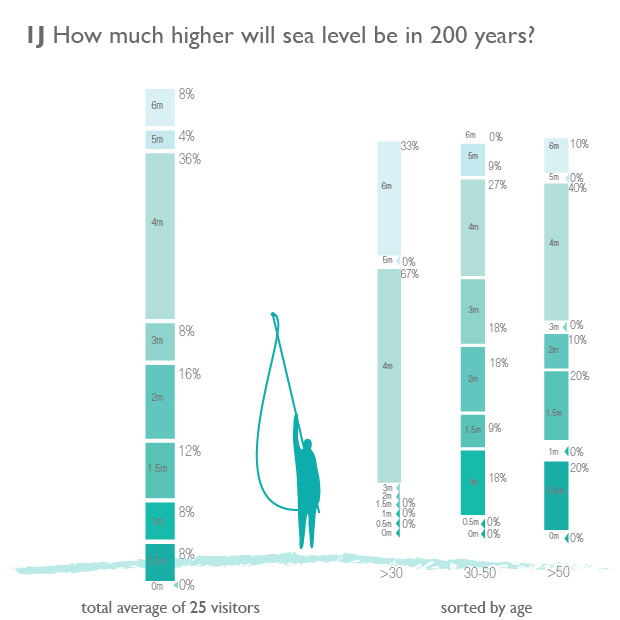
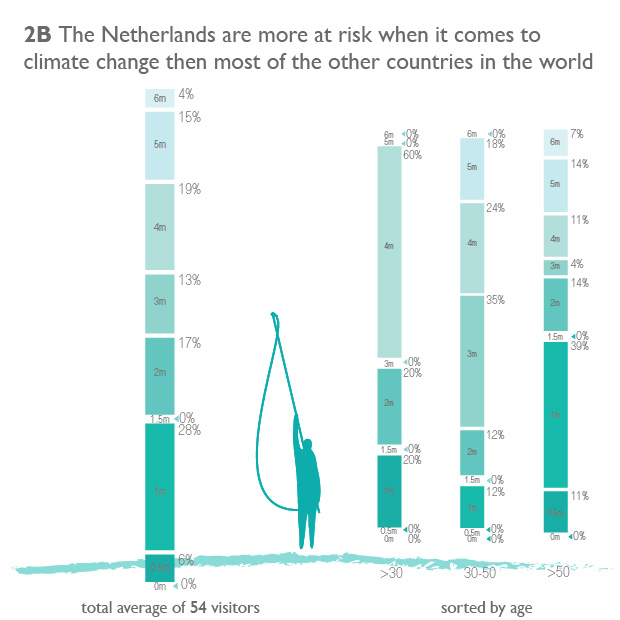
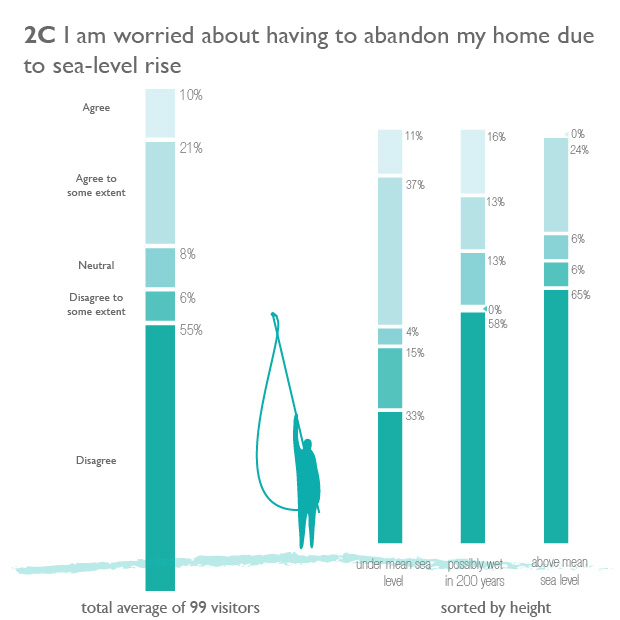
Most Oerol visitors are not afraid of having to abandon their home due to sea level rise. It was clear that many visitors related this question -consciously or unconsciously- to the height of their house towards NAP: visitors living below the current NAP were more concerned about abandonning their house in the future, than the people living on dry ground now and the people who live on dry ground when the water will rise 6 meters.
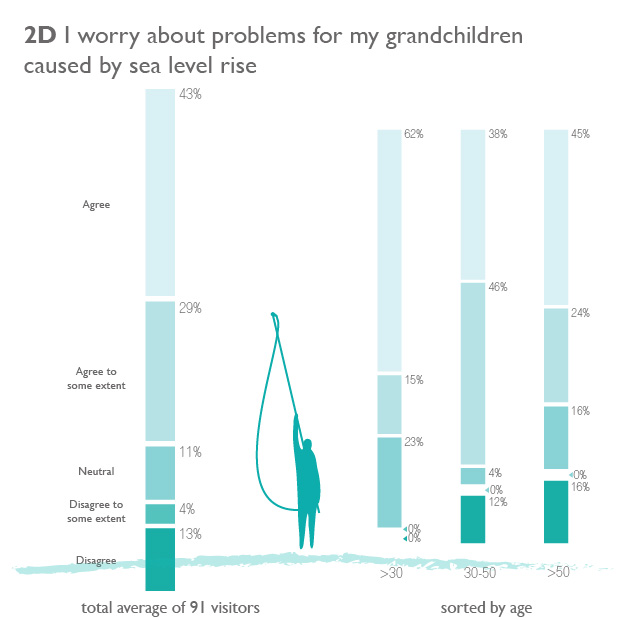
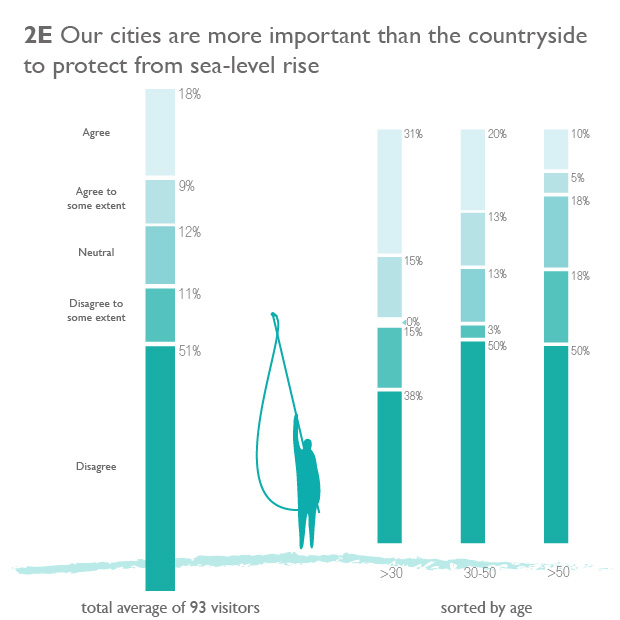
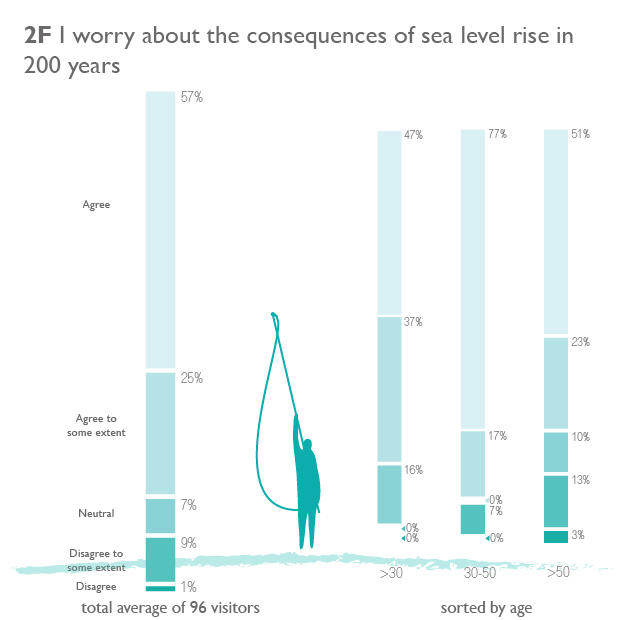
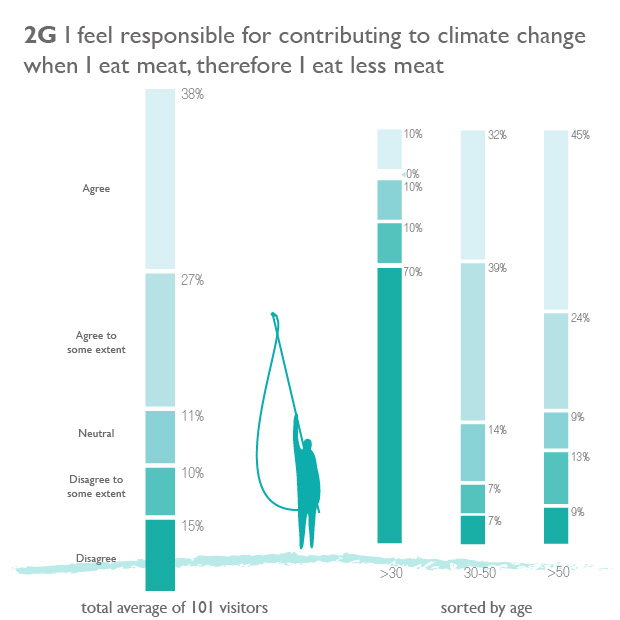
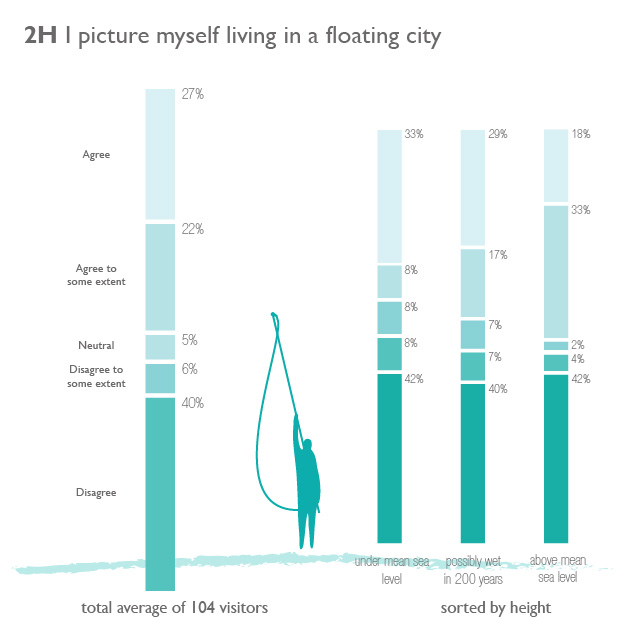
When the water would rise 6 meters in 200 years time, we should think about other ways to live on earth. Living in floating cities could be one of them. The average Oerol visitor didn’t see him/herself living in a floating city. Visitors living below or close to sea level can picture themselves living in floating cities more easy than visitors on higher ground.
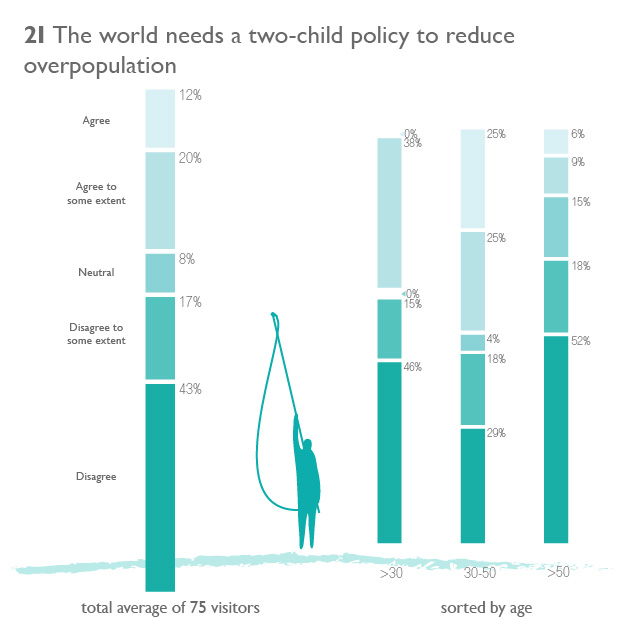
In 1970, China had a one-child policy to reduce overpopulation. Since 2015 they are allowed to have two children. The majority of the Oerol visitor is against this statement and doesn’t want the whole world to have a two-child policy.
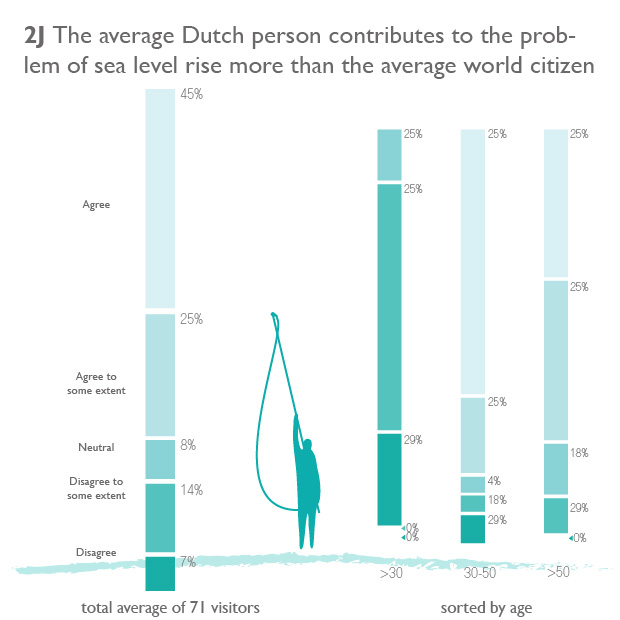
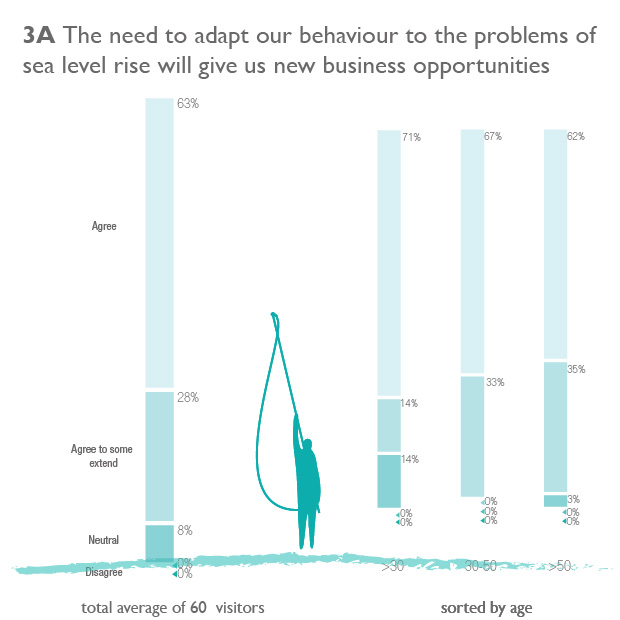
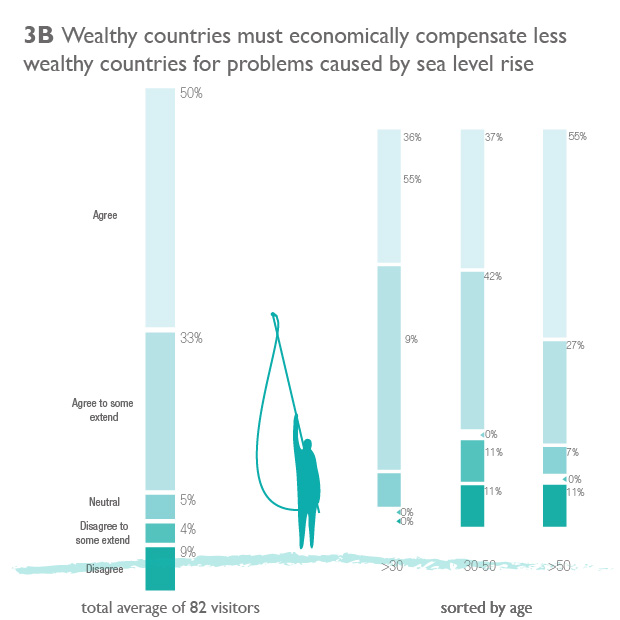
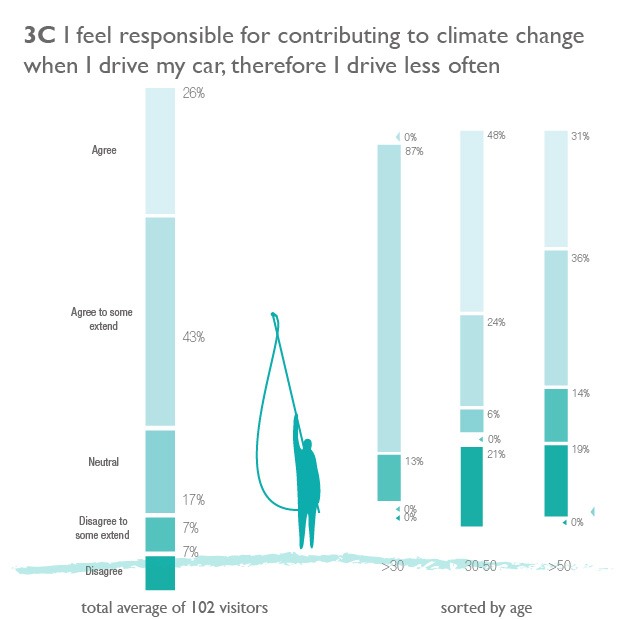
Many Oerol visitors drive less often because of the CO2 emissions.
‘It’s really weard, but I have never thought about this before’
‘I know it’s bad for the climate, that’s why I don’t have a car’
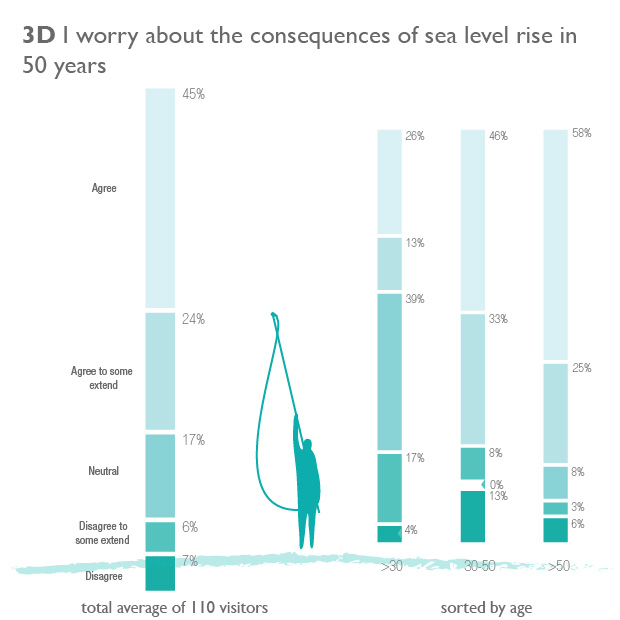
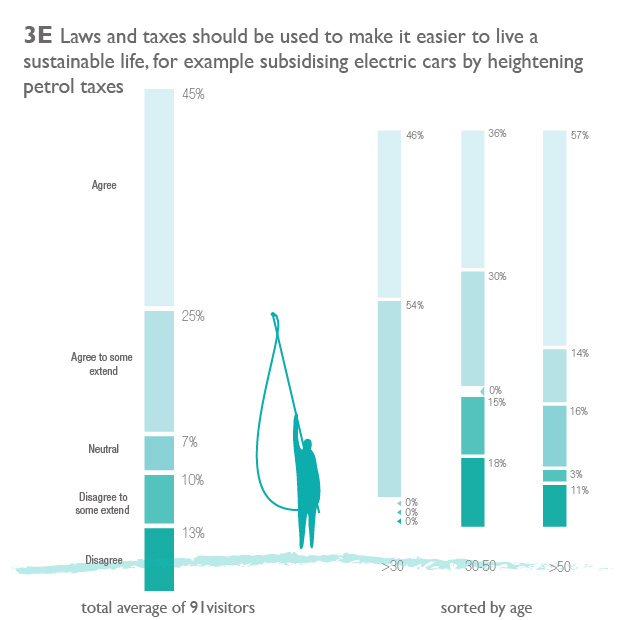
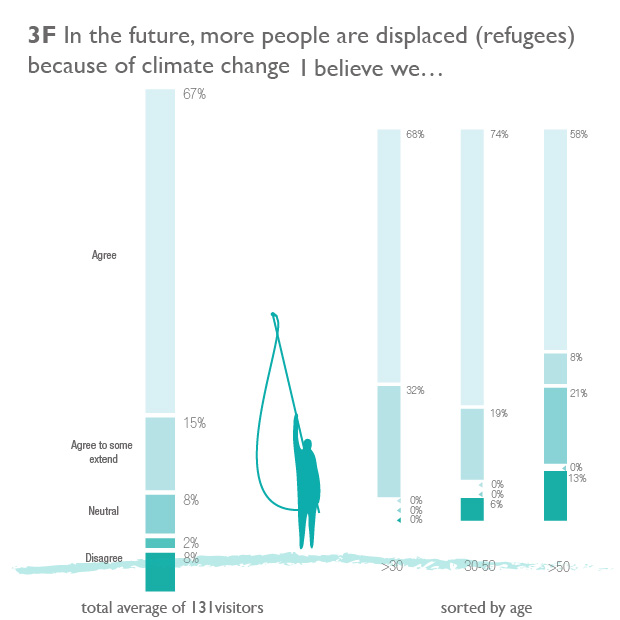
The younger Oerol visitors believe the consequences of sea-level rise will be more catastrophic than the elder Oerol visitors think.
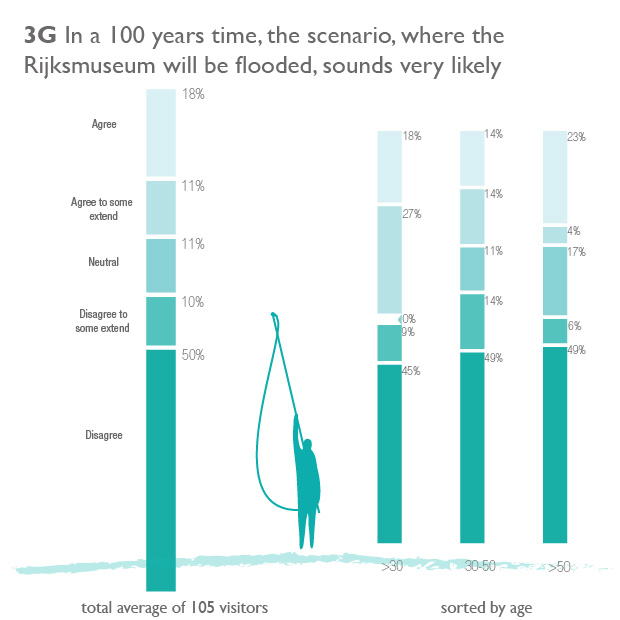
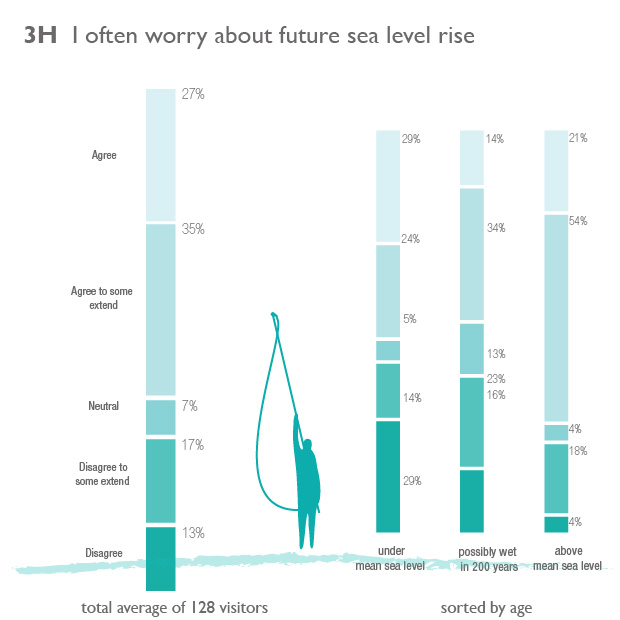
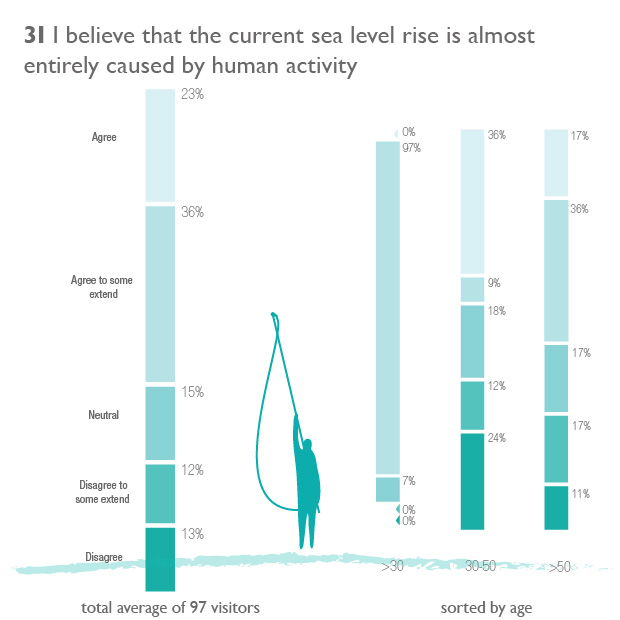
More than 60% of the Oerol visitors, often worries about future sea-level rise. The elder visitors worry more about the rising sea than the younger visitors. Looking at the height where people live, visitors living on dry grounds are more worried than visitors living below sea level. Did the worried people move to higher ground to be protected?
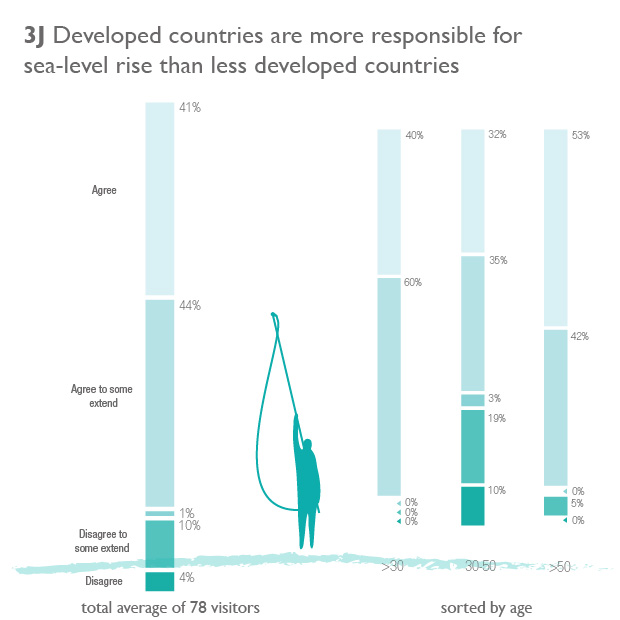
The majority of the interviewed Oerol visitors, agreed on this statement, and thinks that the developed countries are more responsible for sea-level rise than the less developed countries.
Woman: ‘I don’t agree. Less developed countries as India and Bangladesh have bad industries with a lot of emissions, so I don’t think it’s more the responsibility of the developed countries’. Friend: ‘But they are making clothes for us, we want it, so they are by no means more responsible than we are!
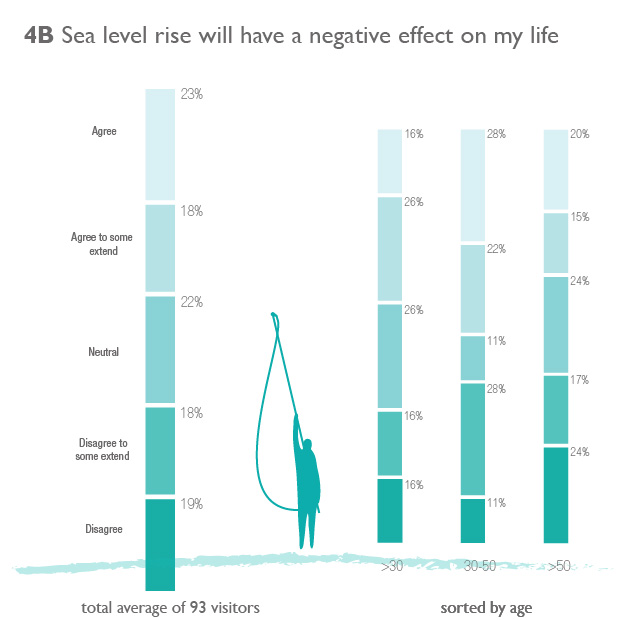
All the options the visitor could choose, are roughly answered just as much.
‘When it effects my grandchildren, it also has a negative influence on my live’
‘I think I should not agree with this statement. When sea-level rise will increase that much that we notice it, I’m not here anymore’
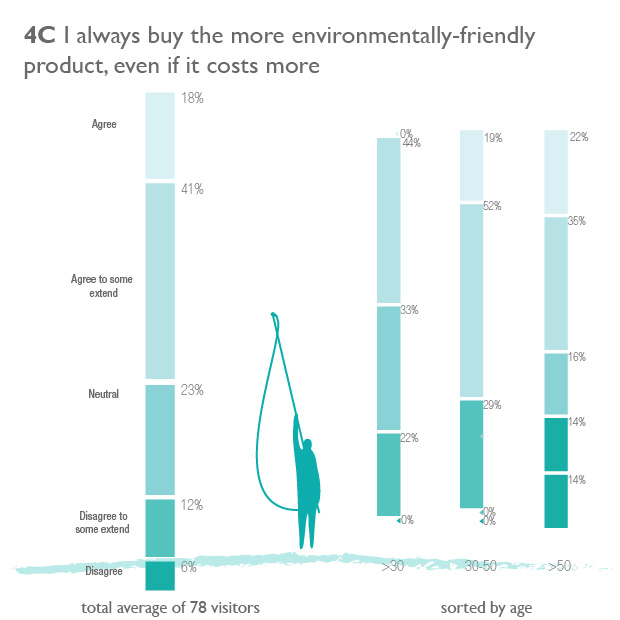
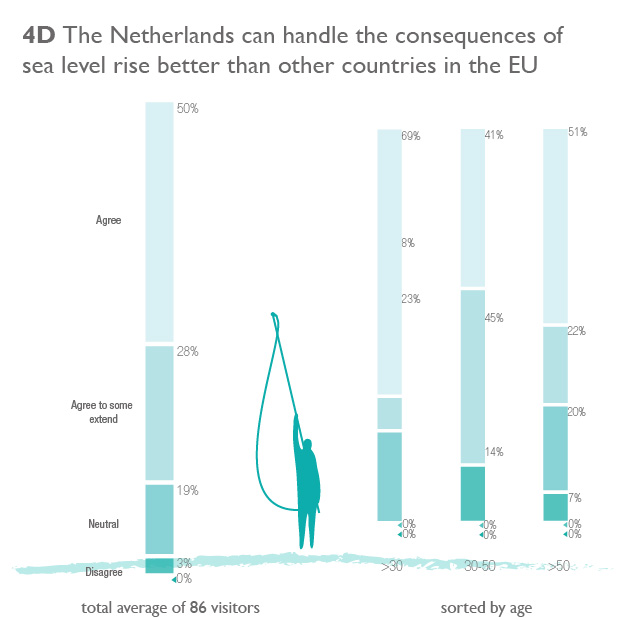
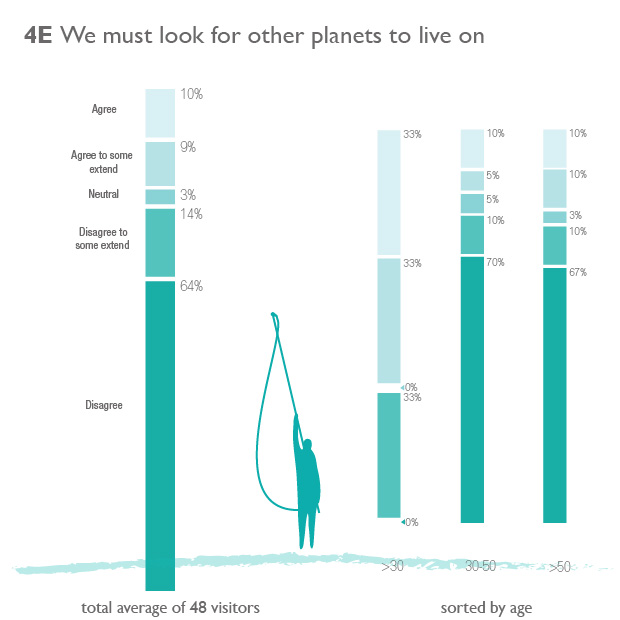
Most visitors think that this idea is a bit too far-fetched.
‘We might need them for industrial purposes, but not to live on’
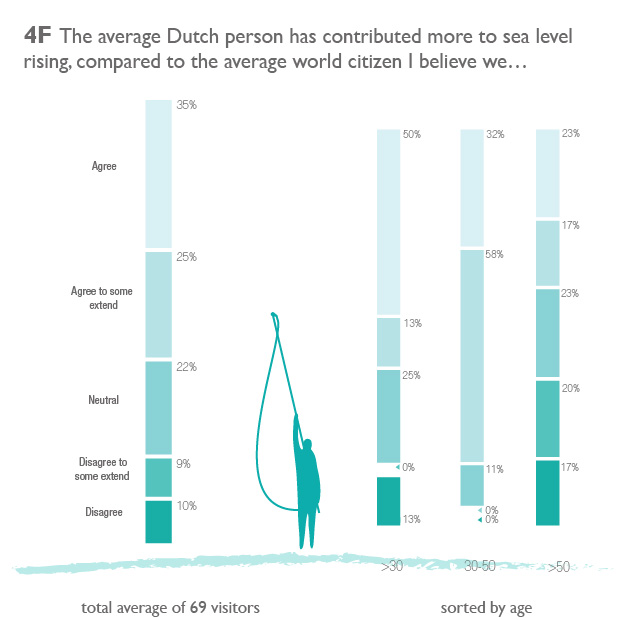
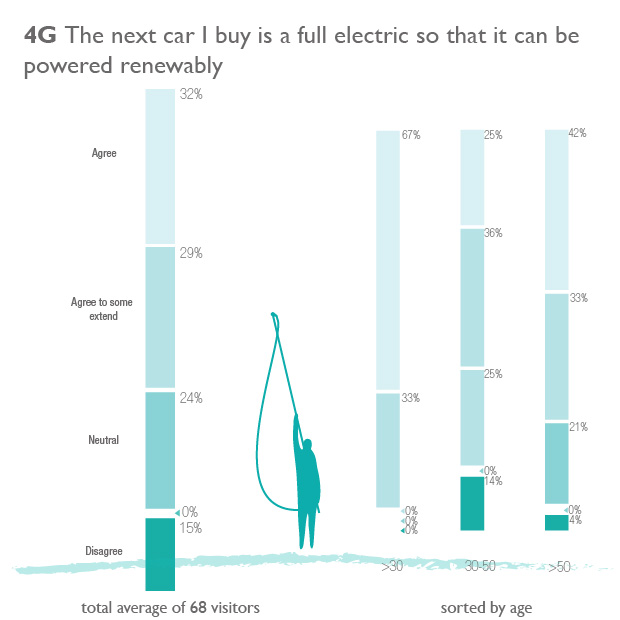
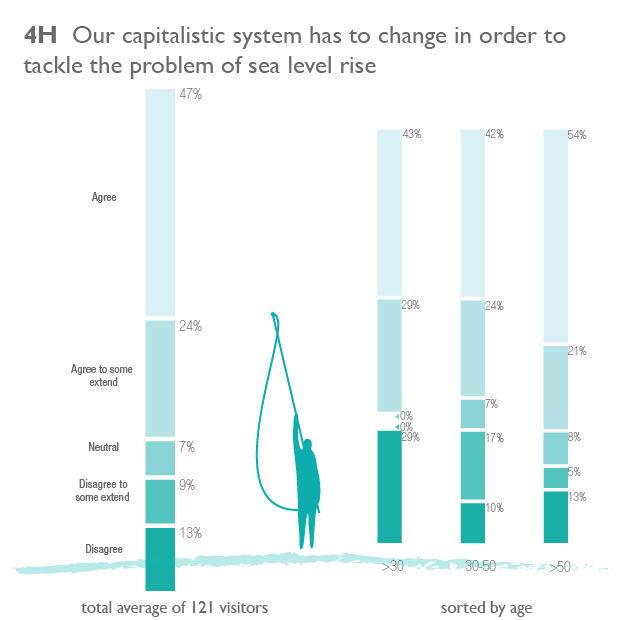
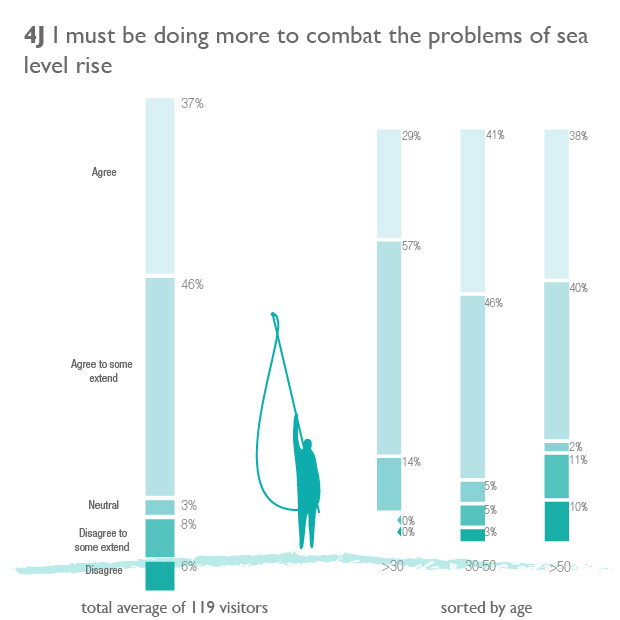
The Oerol visitor doesn’t do enough to combat the problems of sea-level rise, according to their own judgement.
‘So, friends, we have to change our lifestyles. Let’s come up now with an idea how we could combat sea-level rise. I won’t put on my heater until October, what about you?’
Man: ‘I think I already do a lot to combat climate change’. Wife: ‘And what about the avocado’s you eat every day, they have to be sailed all the way from South-America with big and dirty cargo ships, just so you can eat an avocado’
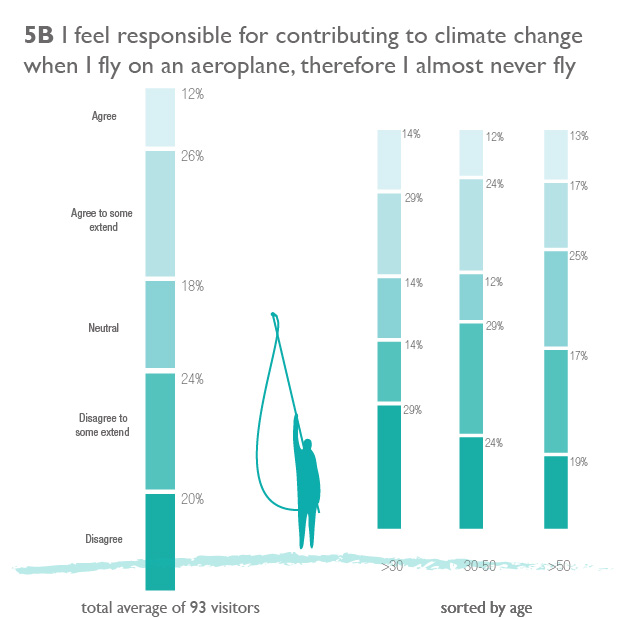
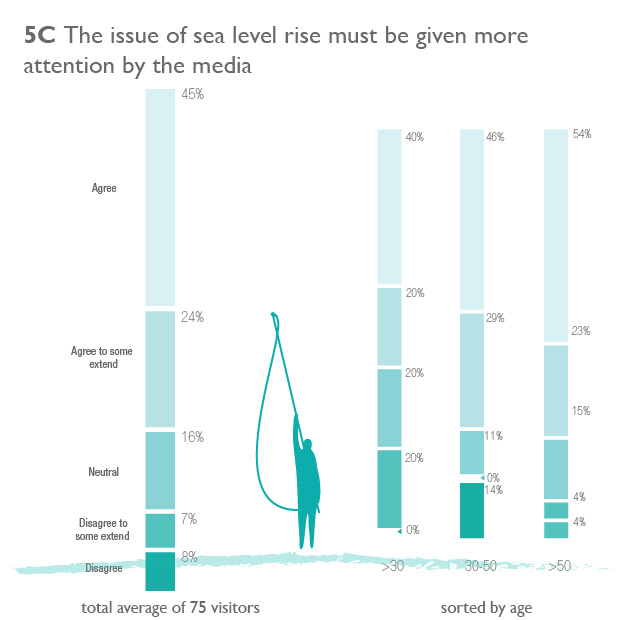
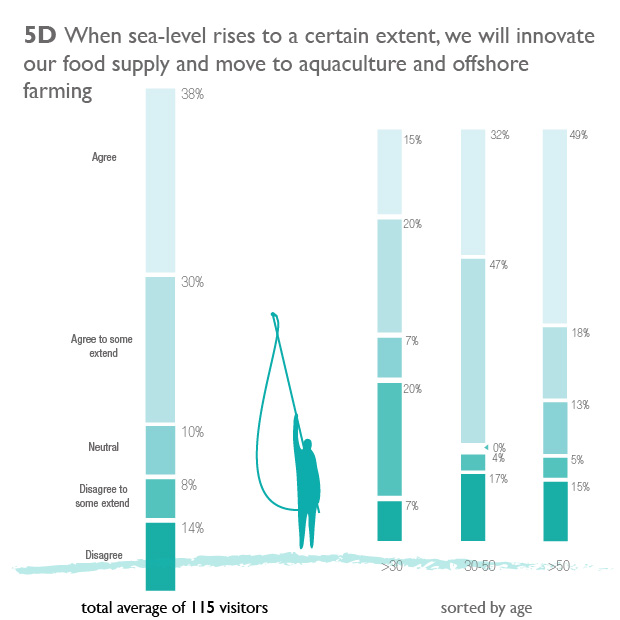
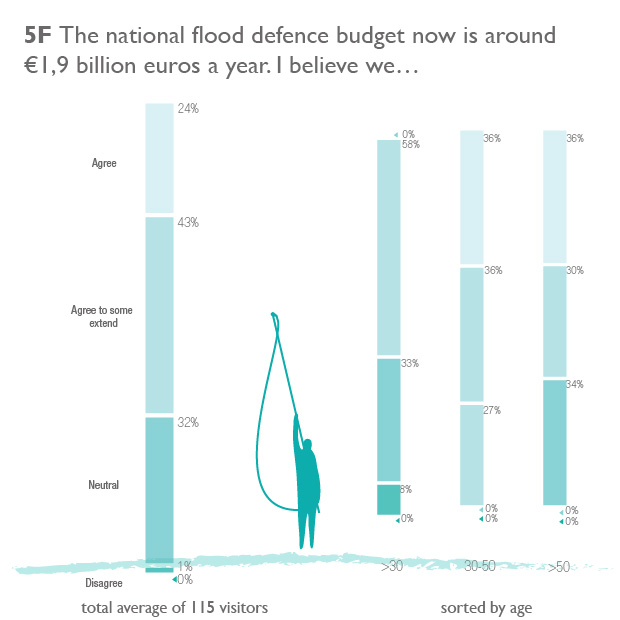
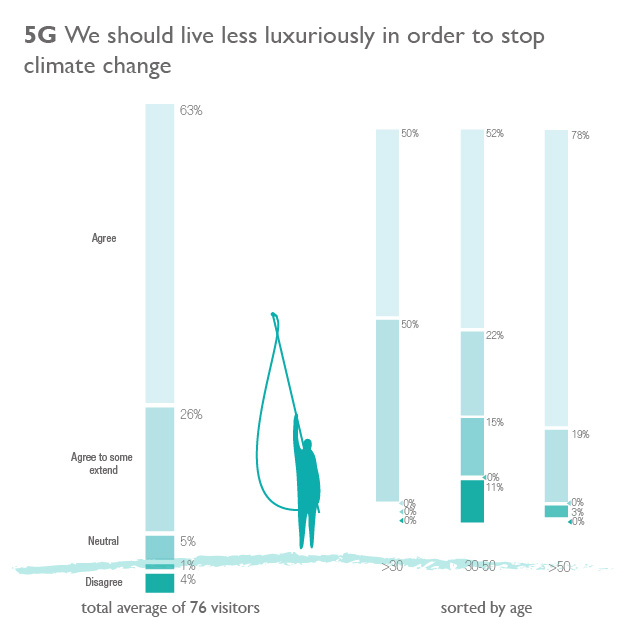
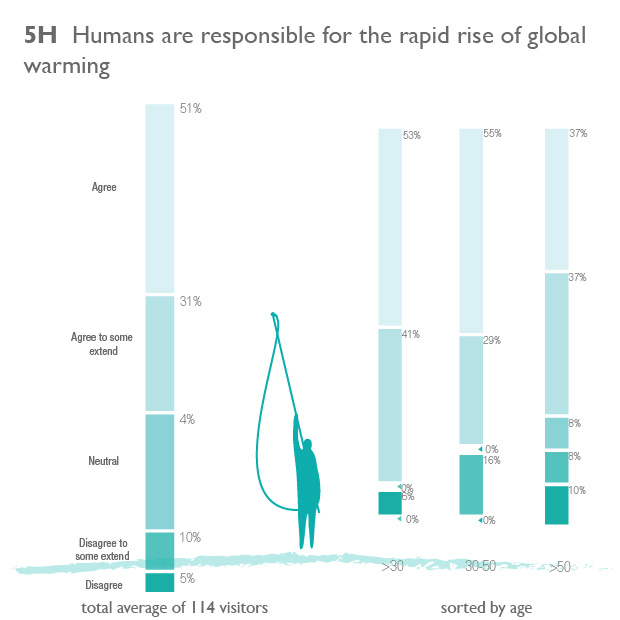
People are blamed for the rising sea-level by all the age groups.
‘It is not only caused by humans… Climate change is also a reason for sea-level rise’
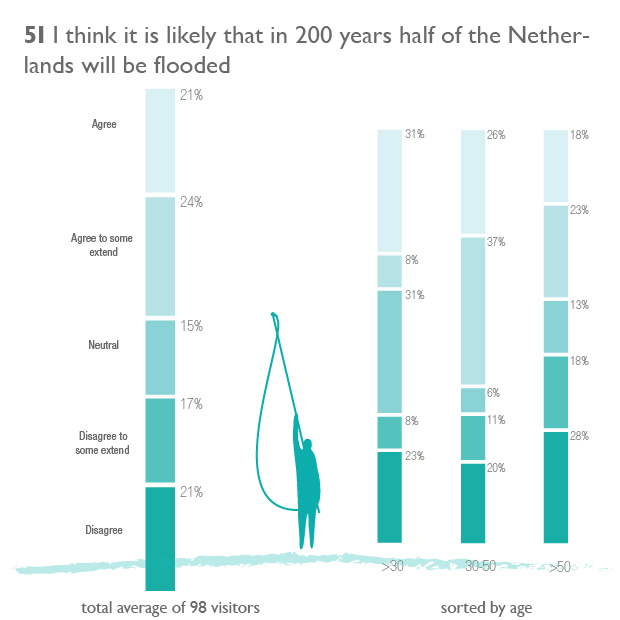
When the sea level will rise 6 meters in 200 years, a huge part of the Netherlands will be flooded. The opinions of the visitors are quite distributed. Some visitors were clearly afraid, while others had faith in possibilities to protect ourselves from it.
‘Of course the water level will rise, but you are from the TU Delft, so you will fix this. Right?’
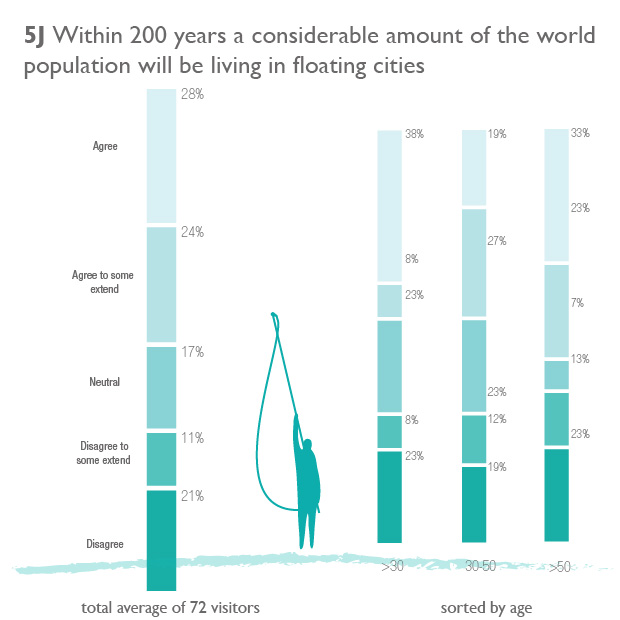
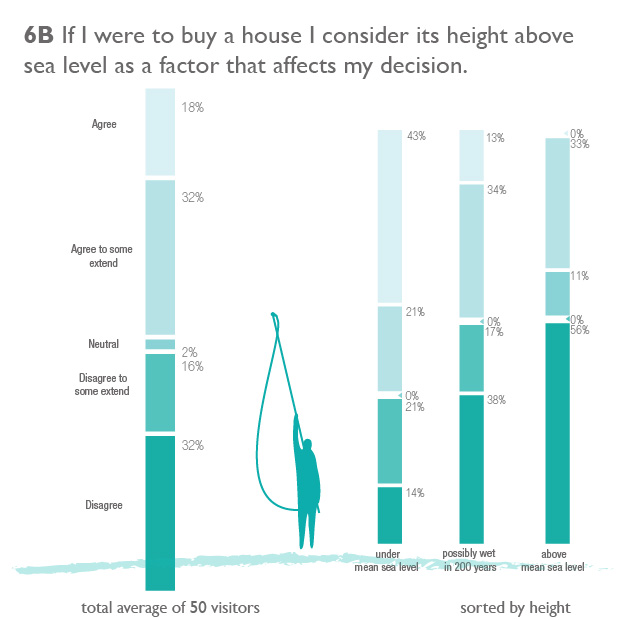
For many visitors, a house above sea level will not be crucial while buying a new house. It is striking that visitors living below sea level are more likely to consider the height above sea level while buying a new house. They might be more aware about the place they live in relation to the visitors living above NAP.
‘I just bought a new house. Is it really stupid that I didn’t think about the height of the house towards NAP?’
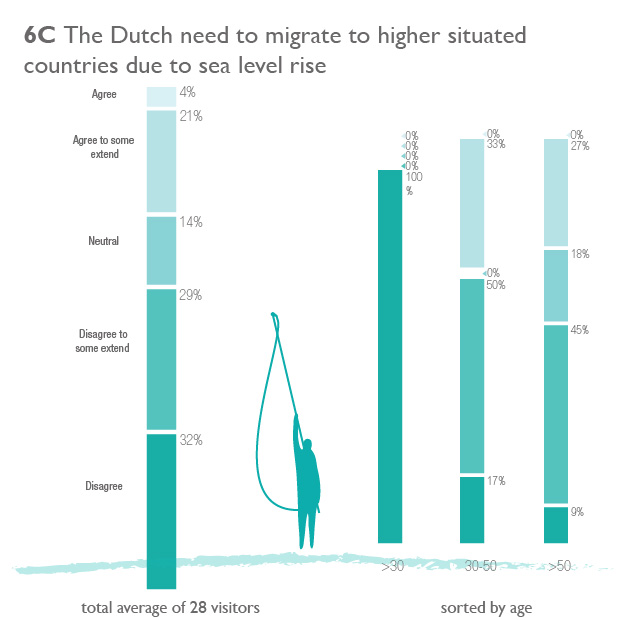
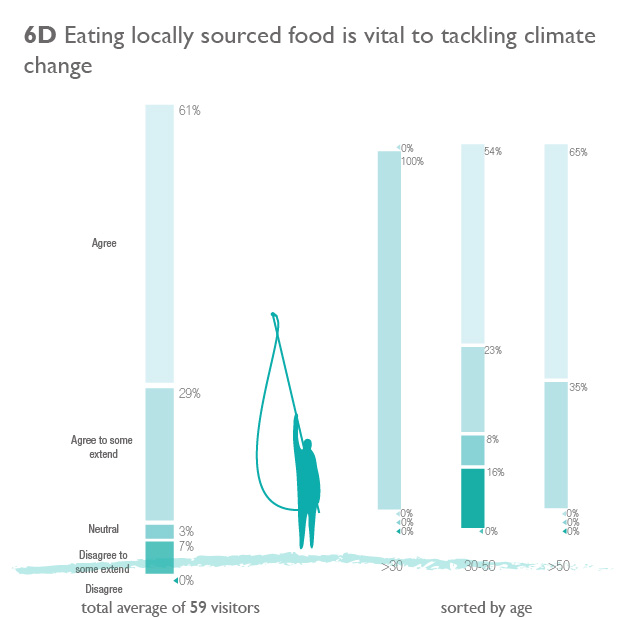
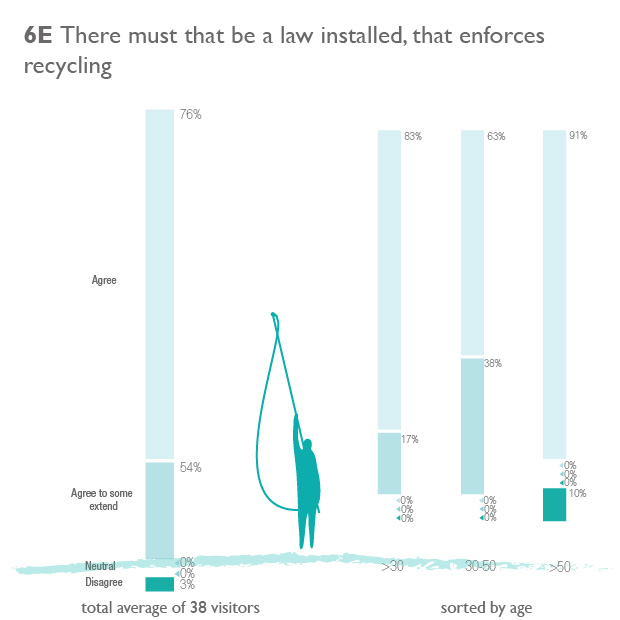
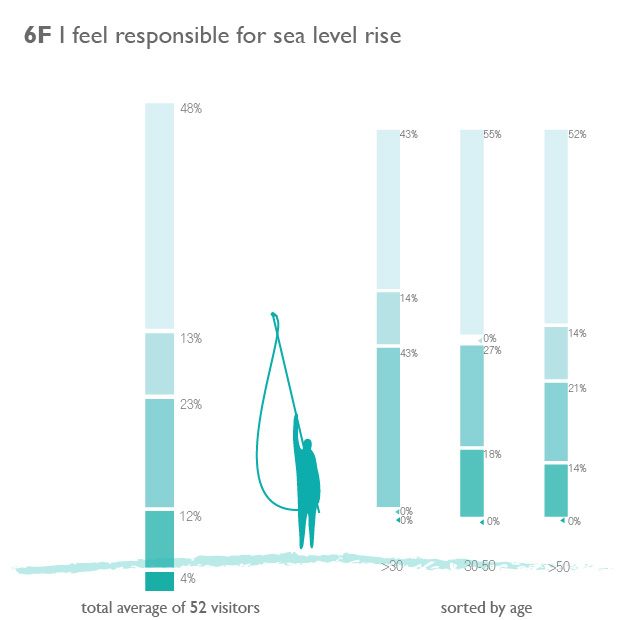
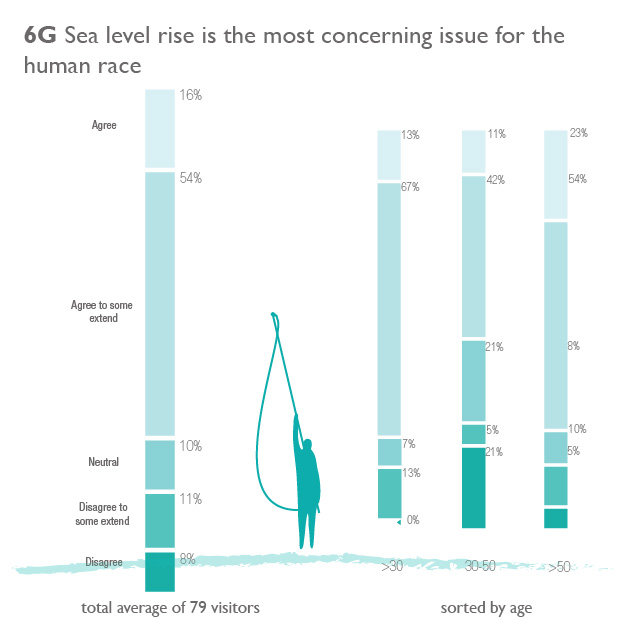
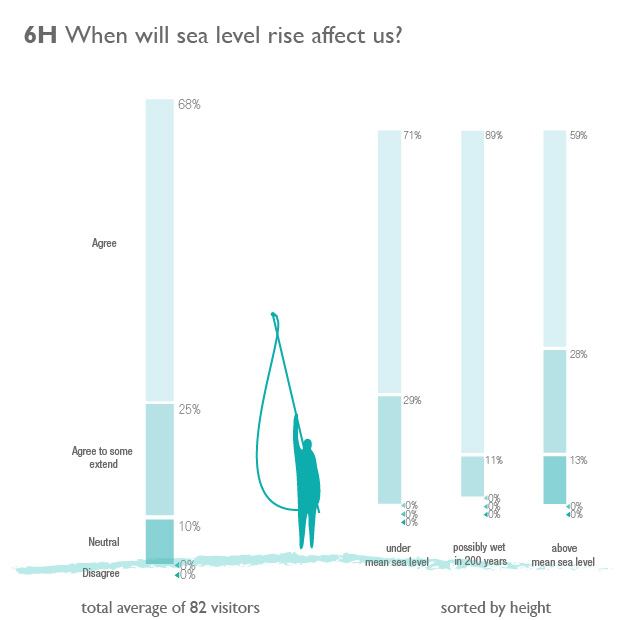
More than 90% of the visitors thinks that the sea level rise already affects us now or will in this decade. Visitors living close to the sea or in lower parts of the Netherlands, think that this happens faster than visitors living in higher parts of the Netherlands. Probably because the people living below sea level are living in more dangerous areas according to sea-level rise.
‘Is the sea already rising?’
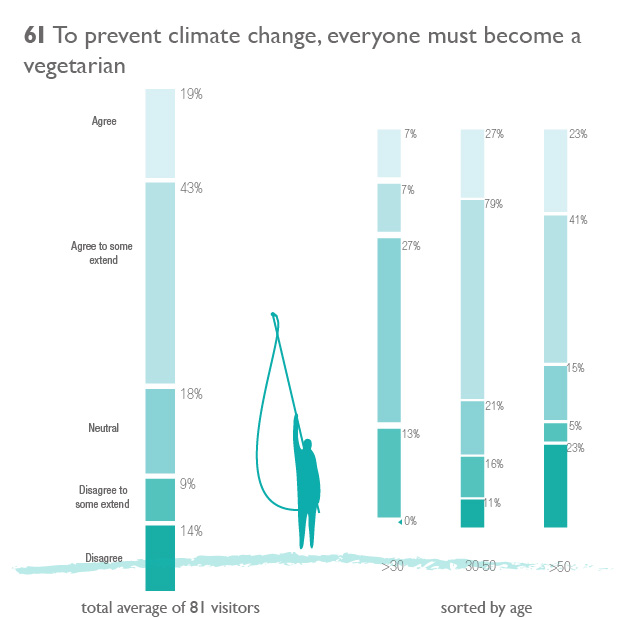
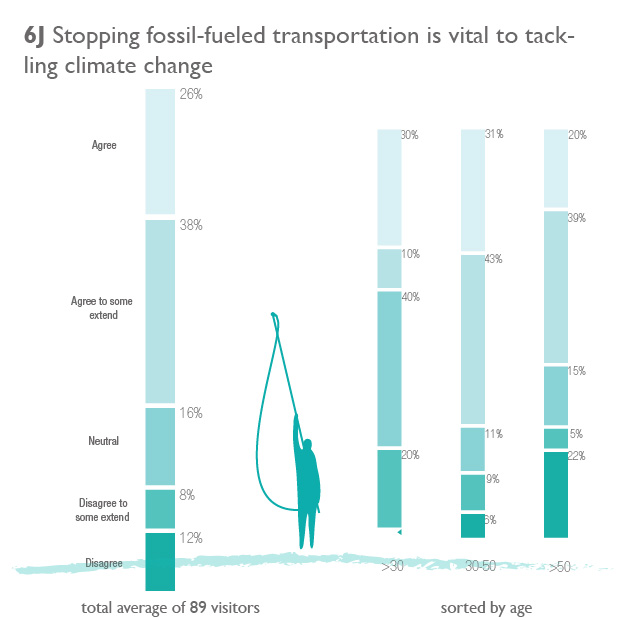
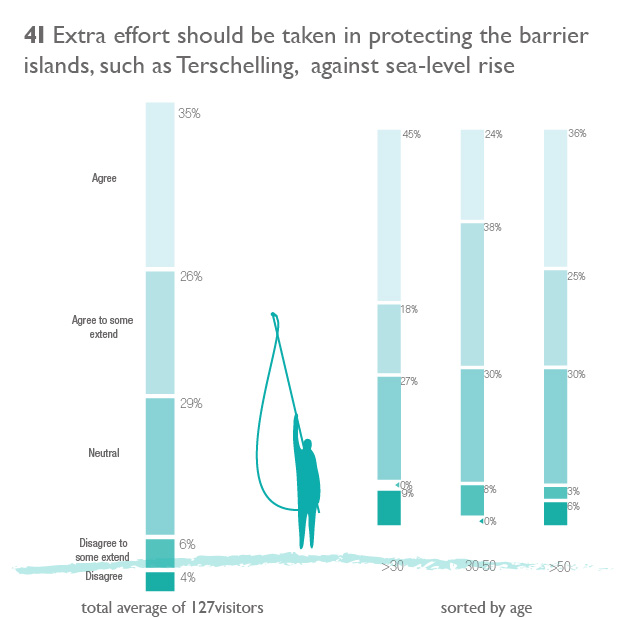
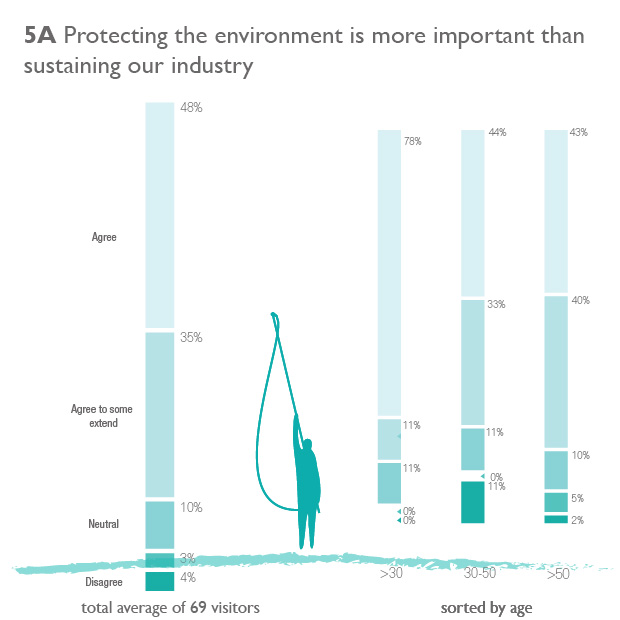
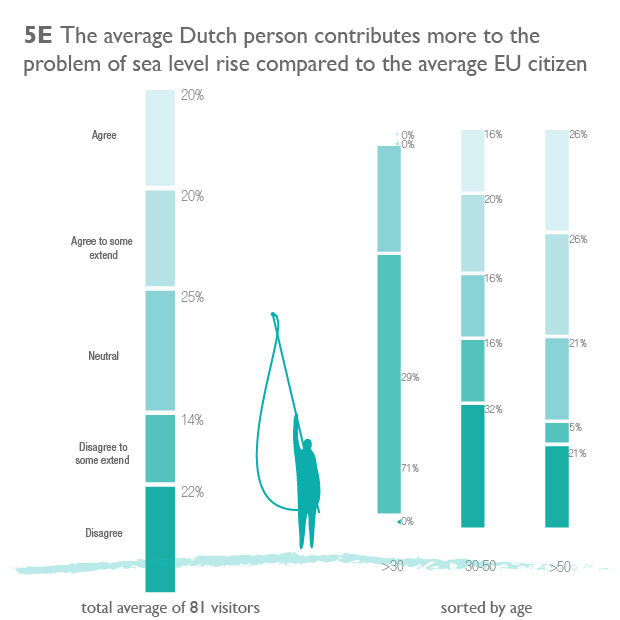
Leave a comment